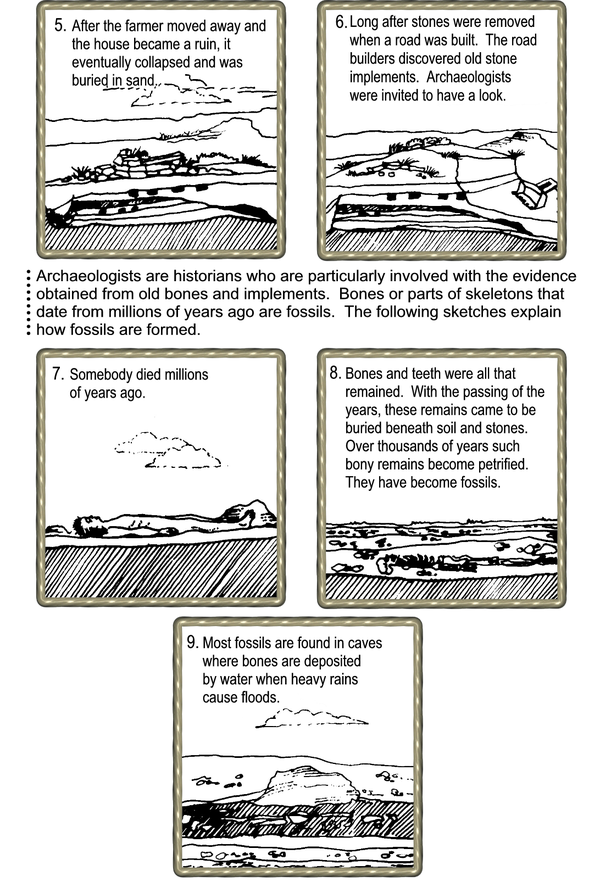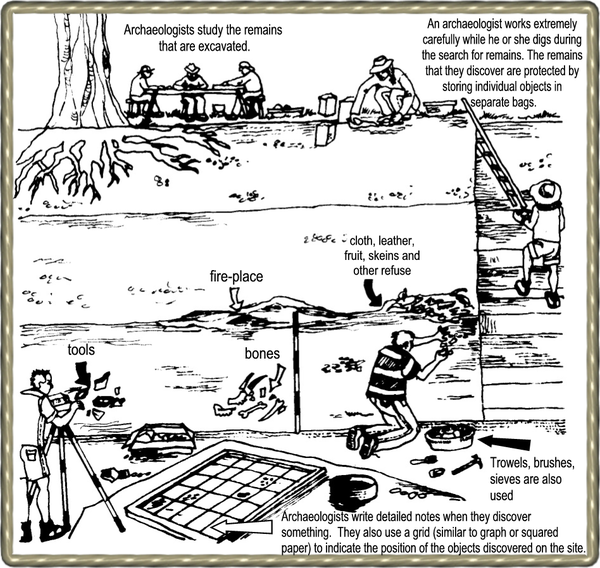| << Chapter < Page | Chapter >> Page > |
When the people living in any particular place die or move away from it, they always leave behind some remains. These remains are remnants of their lives and provide a testimony of their way of life. Much information can be obtained from it. Archaeologists use such remains and objects from the natural environment as sources of information:
During the stone age …


Then start to formulate your own questions and use your own sources, if necessary!

E nrichment:
What do you learn about the people in the house when you examine the contents of the bin?
What can NOT be learnt about the people in the house?
| Assessment standards(ASe) |
| LEARNING OUTCOME 1: HISTORICAL ENQUIRY- The learner will be able to use enquiry skills to investigate the past and present |
| 1.1 Access the sources |
| 1.2 Use the sources |
| 1.3 Communicate information from sources (reporting)) |
| LEARNING OUTCOME 2: HISTORICAL KNOWLEDGE AND UNDERSTANDING – The learner will be able to demonstrate historical knowledge and understanding |
| 2.1 Understand chronology and time |
| 2.2 Supply reasons why an historical event took place (causes, effects) |
| 2.3 Differentiate between different periods (similarities, differences) |
| LEARNING OUTCOME 3: INTERPRETING HISTORY – The learner will be able to interpret aspects of history |
| 3.1 Be aware of more than one view of the past |
| 3.2 Distinguish between fact and opinion |
| 3.3 Reconstruct the past |
Activity 1
(a) (i) Usually the bottom layer.

Notification Switch
Would you like to follow the 'History grade 7' conversation and receive update notifications?